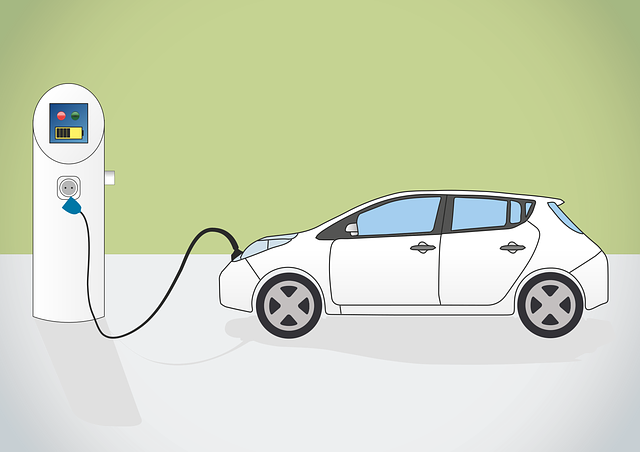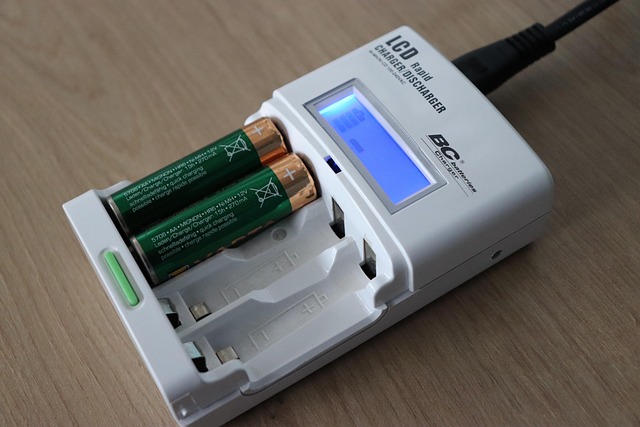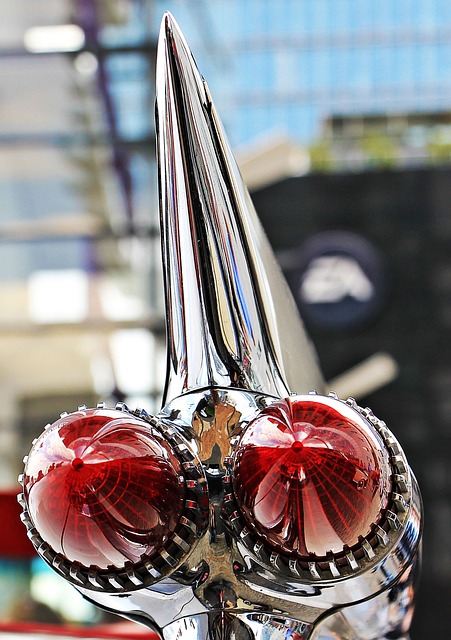Selecting car batteries requires understanding vehicle power needs. Evaluate cold cranking amps (CCAs) and ampere-hour (Ah) ratings using testing equipment. Choose between lead-acid and lithium types based on weight, lifespan, charging times, and climate adaptability. Consider capacity, climate, brand reputation, warranties, and terminal compatibility for informed decisions. Budgeting aligns with vehicle demands ensures optimal performance and peace of mind when selecting car batteries.
Choosing the right car battery is a crucial decision that impacts your vehicle’s performance and longevity. This comprehensive guide will help you navigate the process by understanding your car’s power needs, exploring battery types (lead-acid vs. lithium), assessing capacity and amp hour ratings, considering climate impact, evaluating life expectancy and warranties, and making budget-conscious choices. By the end, you’ll be equipped to select the perfect car batteries for your vehicle.
- Understand Your Car's Power Needs
- Types of Car Batteries: Lead-Acid vs Lithium
- Assess Battery Capacity and Amp Hour (Ah) Rating
- Consider Climate and Temperature Impact
- Evaluate Battery Life Expectancy and Warranty
- Budget and Cost Considerations for Car Batteries
Understand Your Car's Power Needs

When choosing a car battery, understanding your vehicle’s power needs is paramount. Different cars have varying electrical demands, from high-performance sports cars that require more power for quick starts and advanced systems to fuel-efficient models that need batteries capable of handling slower discharge rates and maintaining longer lifespans. To Select the right Car Batteries, you must consider factors like your car’s make and model, its age, and any additional electrical equipment fitted.
The car battery testing equipment can aid in assessing these needs accurately. These tools measure crucial parameters such as cold cranking amps (CCAs) and ampere-hour (Ah) ratings, which indicate the battery’s capacity and performance under load. Knowing your car’s discharge rates will help you choose a battery that matches or exceeds its requirements, ensuring optimal performance and preventing premature replacement costs, which can be substantial, considering the average car battery replacement cost can range from $100 to $200 or more.
Types of Car Batteries: Lead-Acid vs Lithium

When it comes to selecting a car battery, understanding the differences between types is key. Two prominent categories are lead-acid and lithium batteries, each with distinct characteristics that influence your decision. Lead-acid batteries, the traditional choice for decades, are well-established and widely available. They offer affordability and reliability in various climates, making them suitable for most vehicles. However, they require regular maintenance, such as topping up electrolyte levels, to maintain optimal performance.
On the other hand, lithium batteries represent a modern advancement in automotive power sources. Known for their lightweight design and superior energy density, these batteries provide longer life spans and faster charging times compared to lead-acid counterparts. They are especially popular among those seeking high-performance and maintenance-free options, as many top car battery brands now offer premium lithium models. This shift towards lithium reflects a global trend, with an increasing demand for efficient, reliable, and eco-friendly energy solutions in the automotive sector, including maintenance-free car batteries.
Assess Battery Capacity and Amp Hour (Ah) Rating

When selecting a car battery, one crucial factor to consider is its capacity and amp hour (Ah) rating. This measurement indicates how much power the battery can store and discharge. A higher Ah rating signifies a longer-lasting battery with more power, which is essential for starting your vehicle and powering electrical components, especially in colder climates or older cars with high electrical demands.
For instance, if you drive an electric car, look for batteries with higher Ah ratings as they will provide the necessary energy for efficient driving. Similarly, a standard internal combustion engine (ICE) car may require a battery with a specific Ah capacity based on its size and power needs. Referring to a car battery size guide can help determine the appropriate replacement. Additionally, understanding auto battery leaks and smells and choosing a reliable brand that offers modern electric car battery technology will ensure your vehicle’s electrical system operates smoothly and safely.
Consider Climate and Temperature Impact

When selecting a car battery, it’s crucial to consider how climate and temperature impact its performance and longevity. Extreme weather conditions can significantly affect battery life. In colder climates, cold temperatures can slow down chemical reactions within the battery, reducing its capacity and power output. On the other hand, hot environments accelerate these reactions, leading to faster corrosion and potential failure.
To navigate these challenges, choose a car battery designed for your region’s climate. Some manufacturers offer specific models tailored for colder or hotter regions. Additionally, consider implementing a robust car battery recycling program to dispose of old batteries responsibly and stay updated on the latest reviews and ratings, including top-rated marine batteries from reputable brands, to ensure you get the best value and performance for your needs.
Evaluate Battery Life Expectancy and Warranty

When selecting a car battery, evaluating its life expectancy and warranty is paramount. Look for high-quality batteries that align with your vehicle’s requirements and are backed by robust warranties. A reliable battery should offer a reasonable lifespan, often ranging from 3 to 5 years, depending on factors like usage and environmental conditions.
Warranties ensure car battery safety standards and give you peace of mind, protecting your investment. When comparing options, consider both the battery’s capacity (measured in Amp-hours or Ah) and the manufacturer’s guarantee. High-capacity car batteries might be beneficial for those with larger vehicles or those who frequently use power accessories, but always ensure the battery is compatible with your car to avoid potential issues with charging and starting. Additionally, understanding the basics of car battery terminals explained in detail will help you make an informed decision during selection.
Budget and Cost Considerations for Car Batteries

When choosing a car battery, budget is a primary factor to consider. High-performance and long-lasting car batteries often come with a higher price tag, but they can significantly enhance your vehicle’s reliability and safety. On the other hand, budget-friendly options may offer sufficient power for basic needs but might not provide the same level of performance or longevity. It’s essential to balance your requirements with your financial capabilities when selecting car batteries.
Additionally, understanding the cost implications of different types is crucial. High-capacity car batteries, designed for vehicles with high energy demands, typically cost more due to their advanced technology and increased power output. Conversely, standard batteries cater to everyday driving needs and are generally more affordable. By evaluating your vehicle’s requirements and setting a realistic budget, you can make an informed decision when choosing the right car battery, ensuring optimal performance and peace of mind on the road.
When selecting a car battery, consider your vehicle’s power demands, the type (lead-acid or lithium), capacity (measured in amp hours), expected climate conditions, and warranty coverage. Ensure you budget accordingly, as these factors influence your choice. Remember, the right battery will keep your vehicle reliable and prevent unwanted breakdowns. By understanding these key aspects, you can make an informed decision when it comes to selecting car batteries.
